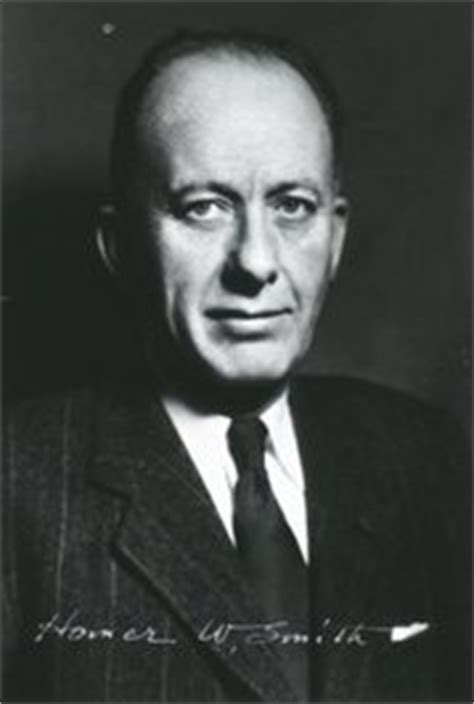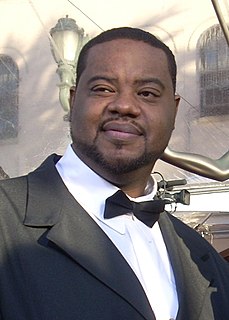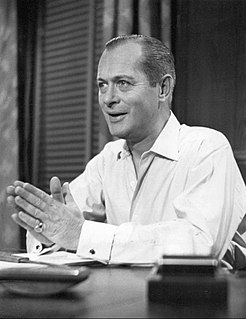A Quote by Homer Smith
Superficially, it might be said that the function of the kidneys is to make urine; but in a more considered view one can say that the kidneys make the stuff of philosophy itself.
Related Quotes
Recognizing that we have the kind of blood we have because we have the kind of kidneys we have, we must acknowledge that our kidneys constitute the major foundation of our philosophical freedom. Only because they work the way they do has it become possible for us to have bones, muscles, glands and brains. Superficially, it might be said that the function of the kidney is to make urine; but in a more considered view one can say that the kidneys make the stuff of philosophy itself.
The responsibility for maintaining the composition of the blood in respect to other constituents devolves largely upon the kidneys. It is no exaggeration to say that the composition of the blood is determined not by what the mouth ingests but by what the kidneys keep; they are the master chemists of our internal environment, which, so to speak, they synthesize in reverse.
People who are living donors who give kidneys. You can't give a heart and you can't give a liver, but you can sure give a lung - well, kidneys, anyhow. And that's where the main part of this whole thing is - one out of every eight people, I believe, is going to have some kind of kidney problem during their lifetime.
The idea that we are "stewards of the earth" is another symptom of human arrogance. Imagine yourself with the task of overseeing your body's physical processes. Do you understand the way it works well enough to keep all its systems in operation? Can you make your kidneys function? Can you control the removal of waste? Are you conscious of the blood flow through your arteries, or the fact that you are losing a hundred thousand skin cells a minute?
Mr Leopold Bloom ate with relish the inner organs of beasts and fowls. He liked thick giblet soup, nutty gizzards, a stuffed roast heart, liverslices fried with crustcrumbs, fried hencods' roes. Most of all he liked grilled mutton kidneys which gave to his palate a fine tang of faintly scented urine.
To accuse another of having weak kidneys, lungs, or heart, is not a crime; on the contrary, saying he has a weak brain is a crime. To be considered stupid and to be told so is more painful than being called gluttonous, mendacious, violent, lascivious, lazy, cowardly: every weakness, every vice, has found its defenders, its rhetoric, its ennoblement and exaltation, but stupidity hasn't.
































